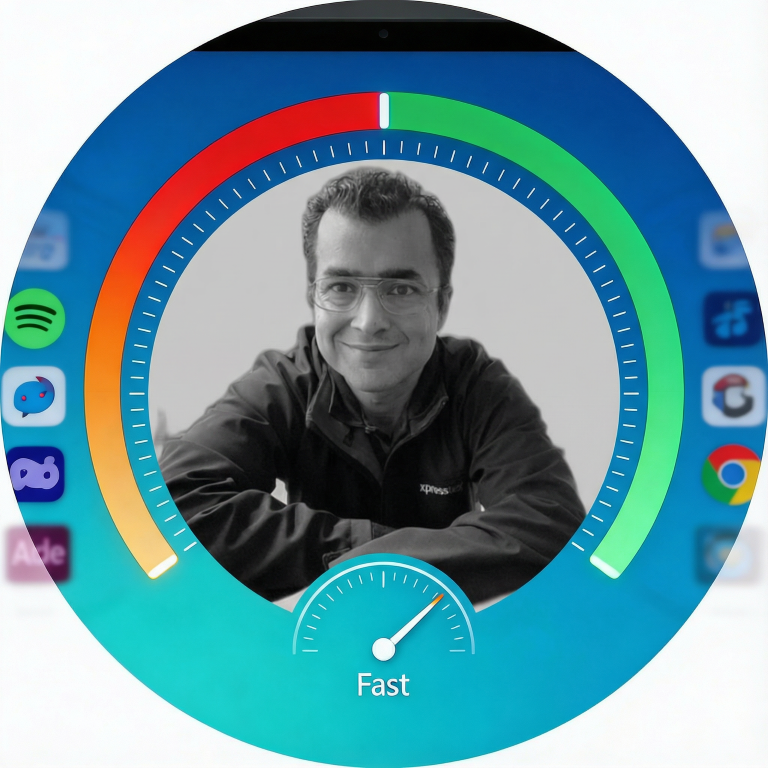
5 Essential Reasons Your Clinic Needs IT Support to Thrive
Medical Practices In Melbourne juggle constant demands. To provide excellent patient care while running efficiently, strong IT support has become a fundamental need.
Here are five essential reasons why your clinic needs robust IT support to thrive.
1. Enhanced Patient Care and Experience For Your Medical Practice

Patient care is at the heart of any healthcare facility.
With the right IT support, clinics can significantly enhance the patient experience, leading to improved satisfaction and outcomes.
For instance, electronic health records (EHR) systems streamline patient data management, allowing healthcare providers to access vital information quickly.
This not only reduces waiting times but also ensures that nurses and Doctors have the most accurate and up-to-date information at their fingertips.
Furthermore, the integration of EHR with other Practice Management Softwares like Best Practice and Medical Director can facilitate better coordination of care, as it allows for the sharing of patient information across different departments and specialties, ultimately leading to more comprehensive treatment plans.
Streamlined Communication Within Your Practice
Effective communication is essential for patient care.
IT support facilitates seamless communication between staff members and patients.
Whether it's through secure messaging systems or patient portals, technology enables timely updates and information sharing.
This transparency fosters trust and enhances the overall patient experience.
Additionally, automated reminders for appointments and follow-up care can significantly reduce no-show rates, ensuring that patients remain engaged in their treatment and feel supported throughout their healthcare journey.
Telehealth Capabilities
With the rise of telehealth, clinics can now reach patients who may have difficulty visiting in person.
IT support ensures that the necessary infrastructure is in place for secure video consultations, remote monitoring, and virtual follow-ups.
This not only expands access to care but also meets the needs of a modern patient population.
Moreover, telehealth can be particularly beneficial for managing chronic conditions, as it allows for regular check-ins and adjustments to treatment plans without the need for frequent in-person visits.
This flexibility can lead to better health outcomes and a more proactive approach to patient management.
2. Improved Operational Efficiency Within The Medical Practice
Operational efficiency is crucial for any clinic looking to thrive.
IT support can help streamline various processes, reducing administrative burdens and allowing healthcare professionals to focus on patient care.
In an environment where every minute counts, the ability to quickly access patient records and streamline communication between departments can significantly enhance the overall patient experience.
This efficiency not only improves the workflow within the clinic but also fosters a more responsive and attentive atmosphere for patients.
Automation of routine tasks, such as appointment scheduling and billing, can save valuable time and reduce the risk of human error.
By implementing efficient IT systems, clinics can optimise their workflows and improve overall productivity.
For instance, automated reminders can be sent to patients regarding upcoming appointments, thereby reducing no-show rates and ensuring that healthcare providers can maximize their time with patients who need care.
This proactive approach to scheduling not only enhances operational efficiency but also strengthens patient engagement and satisfaction.
Data Management and Analytics For The Practice Staff
Data is a powerful tool in healthcare. IT support enables clinics to collect and analyze patient data effectively.
This information can be used to identify trends, monitor outcomes, and make informed decisions about resource allocation.
By leveraging data analytics, clinics can enhance their services and better meet the needs of their patients.
For example, analyzing patient demographics and treatment outcomes can help clinics tailor their services to specific populations, ensuring that they provide the most relevant and effective care possible.
Moreover, advanced analytics can assist in predicting patient needs and potential health crises, allowing clinics to implement preventive measures before issues escalate.
This proactive approach not only improves patient outcomes but also fosters a culture of continuous improvement within the clinic.
By regularly reviewing data and adjusting strategies accordingly, healthcare providers can remain agile and responsive to the ever-changing landscape of patient care.
Cost Reduction Is Possible Within The Practice
While investing in IT support may seem like an additional expense, it can lead to significant cost savings in the long run.
By optimising processes and reducing inefficiencies, clinics can lower operational costs.
Furthermore, with improved data management, clinics can avoid costly mistakes and ensure compliance with regulations, ultimately protecting their bottom line.
The initial investment in IT infrastructure can be quickly offset by the reduction in administrative costs and improved billing accuracy, which can lead to faster reimbursement cycles.
Additionally, the integration of telehealth services, supported by robust IT systems, can open new revenue streams for clinics.
By offering virtual consultations, clinics can reach a broader patient base, including those in remote areas or with mobility challenges.
This not only enhances access to care but also allows clinics to operate more efficiently by reducing the need for in-person visits for routine check-ups or follow-ups.
As a result, clinics can maintain a steady flow of revenue while simultaneously providing high-quality care to their patients, demonstrating that strategic IT investments can yield substantial financial and operational benefits.
3. Enhanced Security and Compliance For The Medical Practice

In the healthcare industry, protecting patient data is paramount.
IT support plays a critical role in safeguarding sensitive information from cyber threats and ensuring compliance with regulations such as RACGP.
The stakes are incredibly high; a data breach can not only lead to significant financial penalties but also erode the trust that patients place in their healthcare providers.
Therefore, a comprehensive approach to IT security is not merely an option but a necessity for any clinic aiming to uphold its ethical and legal responsibilities.
With the increasing prevalence of cyberattacks, clinics must prioritise data security.
IT support provides the necessary tools and expertise to implement robust security measures, such as encryption, firewalls, and regular security audits.
This proactive approach helps prevent data breaches and protects the clinic's reputation.
Moreover, the integration of advanced technologies like artificial intelligence can enhance threat detection capabilities, allowing clinics to respond swiftly to potential vulnerabilities before they can be exploited.
Regular Updates and Maintenance For The Medical Practice Terminals
Technology is constantly evolving, and keeping systems up to date is essential for maintaining security.
IT support ensures that software and hardware are regularly updated, minimising vulnerabilities.
Additionally, routine maintenance can identify potential issues before they escalate, further protecting patient data.
This includes not just updates to operating systems and applications but also patch management, which addresses specific vulnerabilities that could be targeted by cybercriminals.
By staying ahead of the curve, clinics can significantly reduce their risk profile.
Training and Awareness For Medical Practice Admin Staff
Even the best security measures can be compromised by human error.
IT support includes training staff on best practices for data security, ensuring everyone understands their role in protecting patient information.
Regular training sessions can foster a culture of security awareness within the clinic, reducing the likelihood of breaches.
Furthermore, simulated phishing exercises can help staff recognize and respond to potential threats, reinforcing the importance of vigilance in everyday operations.
By empowering employees with knowledge and skills, clinics can create a more resilient defense against cyber threats.
In addition to formal training, ongoing communication about emerging threats and security updates can keep data protection at the forefront of staff members' minds.
Newsletters, bulletins, or even informal discussions can serve as reminders of the importance of security practices.
This continuous engagement not only enhances the overall security posture of the clinic but also cultivates a sense of shared responsibility among all team members, making data protection a collective priority rather than an isolated task.
4. Scalability and Adaptability For Your Medical Practice
As clinics grow and evolve, their IT needs will change. Having reliable IT support allows clinics to scale their operations effectively and adapt to new challenges.
Whether expanding services, adding new staff, or integrating new technologies, IT support provides the necessary infrastructure to accommodate growth.
This adaptability ensures that clinics can respond to changes in the healthcare landscape without compromising patient care.
Integration of New Technologies
The healthcare industry is constantly innovating, with new technologies emerging regularly.
IT support enables clinics to integrate these technologies seamlessly, whether it's advanced diagnostic tools, patient management systems, or telehealth platforms.
This integration not only enhances service delivery but also positions the clinic as a leader in the field.
Future-Proofing Your Medical Clinic
Investing in IT support is an investment in the future of the clinic. By staying ahead of technological trends and ensuring systems are adaptable, clinics can future-proof their operations.
This proactive approach allows for continuous improvement and ensures that the clinic remains competitive in a rapidly changing environment.
5. Better Financial Management For The Medical Practice

Financial health is crucial for any clinic's success.
IT support can significantly improve financial management, from billing processes to budgeting and forecasting.
With advanced financial management software, clinics can streamline billing and collections, reducing delays and improving cash flow.
IT support ensures that these systems are functioning optimally, allowing for accurate tracking of revenue and expenses.
Data-Driven Financial Decisions
Access to real-time financial data enables clinic administrators to make informed decisions.
IT support provides the tools necessary for analyzing financial performance, identifying areas for improvement, and implementing strategies to enhance profitability.
This data-driven approach can lead to more sustainable financial practices.
Compliance with Financial Regulations
Healthcare clinics must adhere to various financial regulations, and non-compliance can result in severe penalties.
IT support ensures that financial systems are compliant with relevant laws and regulations, reducing the risk of audits and fines.
This peace of mind allows clinic administrators to focus on providing quality care rather than worrying about financial liabilities.
In an increasingly complex healthcare landscape, IT support is no longer a luxury but a necessity for clinics aiming to thrive.
From enhancing patient care and improving operational efficiency to ensuring data security and financial management, the benefits of robust IT support are undeniable.
Investing in IT support not only helps clinics meet current challenges but also prepares them for future growth and innovation.
By recognising the essential role of technology in healthcare, clinics can position themselves for success in an ever-evolving industry.



